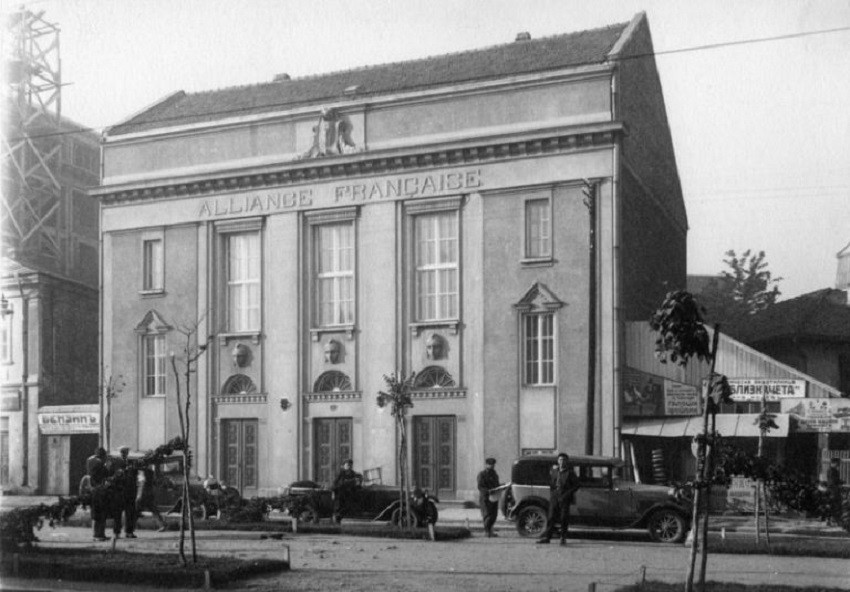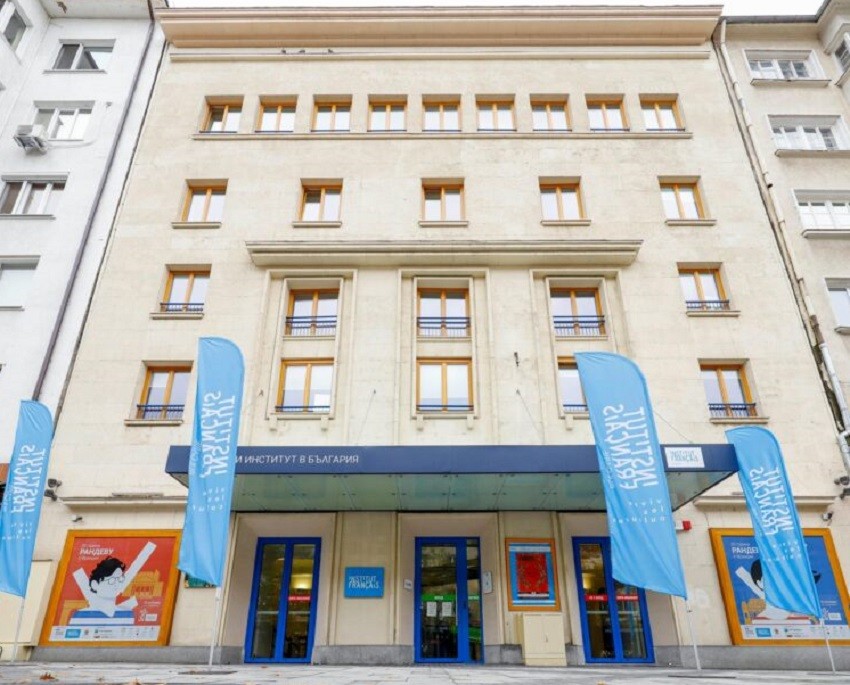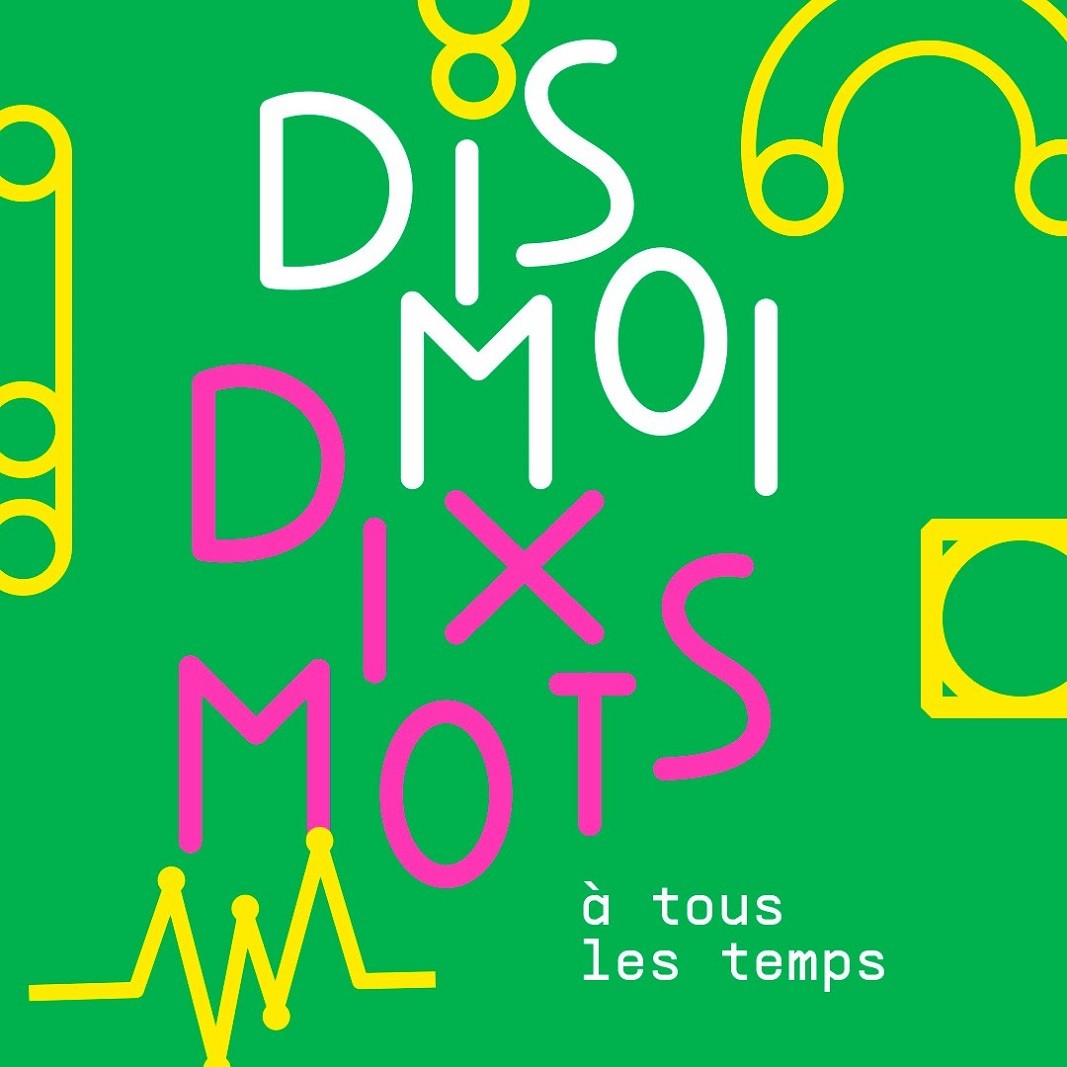20 March is International Francophonie Day. On this day, the Agency for Cultural and Technical Cooperation was set up in Niamey, Niger, which later changed its name to International Organisation of La Francophonie, of which Bulgaria has been a member for 30 years after joining in December, 1993. “A powerful political gesture,” according to Pierre Colliot, Director of the French Institute in Bulgaria and councilor for cooperation and cultural action with the French embassy:

“This decision reflects the wish of the then President of Bulgaria (Zhelyu Zhelev – editorial note) to take Bulgaria, the new Bulgaria, onto the international stage, and to do that he chose the International Organisation of La Francophonie.”
Before becoming a full member of the organization, Bulgaria first joined as observer in 1991 “a little after the fall of the Berlin wall and the end of the communist era,” Pierre Colliot says in an interview with Radio Bulgaria. “There is one more strong connection with the visit by French President François Mitterrand two years earlier and the memorable breakfast at the embassy.” The meeting Mitterrand organized with Bulgarian intellectuals and dissidents, among them the future President of Bulgaria Zhelyu Zhelev, on 20 January, 1989 was an important element of the ongoing democratic changes.

But French influence was felt even before the Liberation of Bulgaria, especially in culture and education, with many Bulgarians going to study in France. Later, French universities were to become a preferred place for the Bulgarian cultural, political and economic elite to obtain an education. The first state budgets of the Third Bulgarian Kingdom, before a national currency was introduced, were in Francs.
France’s cultural influence continued in the times of the communist regime…
“There is a period in the 1950s when Alliance Française institutes were shut down, including the one in Sofia, which was housed in the building we are in right now. It was built by the Alliance Française in 1924 and opened in 1925. In spite of this rift at an institutional level, the French language was still being taught even then, and the teachers were extremely well educated,” the director of the French Institute in Sofia says.

To mark the 30th anniversary of Bulgaria’s membership of the International Organisation of La Francophonie, in the month of March which is Francophonie month, the French Institute has a diverse programme lined up, with school-goers being the primary target audience “because we want to show them that Francophonie is a living being,” Pierre Colliotsays. The drama studios and the music events will focus on practicing the “living” French language. “The reading challenge” will endeavor to “challenge” young people to open a book in the French language. There will also be meetings between ambassadors from the Group of Francophone Ambassadors and young French-speakers from Bulgaria’s schools. The pupils from 19 schools will “discover that Francophonie is more than just France, it is many countries on all continents.”

An important role in preserving and popularizing French-language culture is played by communities outside France and in French-speaking countries, as well as in countries where French is spoken though not necessarily as a native language – as is the case in many parts of Africa. But there are many more communities in countries where French is not spoken as a rule and “Bulgaria is one of the most remarkable examples,” Pierre Colliot adds.
How can we preserve multilingualism and with its – diversity in the world?
“That is a political act,” Pierre Colliot says. “Therefore it is up to governments to protect their language at international institutions.” In the EU, for example, there are 24 official languages. “It is important for the representatives of the different countries to speak their own language when they talk to each other. I’m saying this because in France too there is sometimes a tendency of using English because it is easier.”
The second important line is education, Pierre Colliot goes on to say – in this, schools and headmasters have a big responsibility. Many of them support multilingualism in the choice of study programme, and last but not least comes the role of embassies in encouraging the teaching of different languages.

In connection with the initiative “Tell me 10 words”, which includes exhibitions, reading, creative writing and dictation ateliers on the basis of 10 words in French, which are this year connected with time, Pierre Colliot gave us his own key words:
“First and foremost “heart”, because in Bulgaria Francophonie is Francophonie of the heart, i.e. it is a matter of choice. The second word is “youth” because the people coming to the French Cultural Institute in Bulgaria are mostly young people, and young people are an important asset for the country. The third is “beauty” because your country really is so exceedingly beautiful. And also – Francophonie which is everywhere in Bulgaria – from East to West and from North to South, with surprise encounters with French-speaking people all over the country,” says in conclusion Pierre Colliot. Director of the French Institute in Sofia in an interview with Maria Stoeva from Radio Bulgaria’s French-language service.
Photos: institutfrancais.bg, Facebook/InstitutFrancaisdeBulgarie
The 61 st Bologna Children's Book Fair opens on 8 April. The biggest international event for children’s literature will this year go on until 11 April, and Bulgaria will, for the first time, be presented with a designated 64 sq. m. stand of..
At a ceremony, the Aleko Konstantinov Satirical Theater in Sofia will present the Golden Kukerikon awards this evening for contribution to the development of the art of comedy and satire. With the awards in the categories "Young Hope", "Male role",..
"Once upon a time in Bologna they built a palace made of ice cream right in the Grand Piazza and children came from far and wide to have a taste" - with these words begins the story "The Palace of Ice Cream" from the book "Telephone Tales" by Gianni..
The book "The Sboryanovo Enigma” by Dragomir Bogomilov will be presented this evening at 7:00 pm in the "Sofia" gallery of the..
April 25 is the birth date of Izko Finzi, part of the so-called "golden generation" of Bulgarian actors. For his 91-year earthly journey until now, Izko..

+359 2 9336 661
